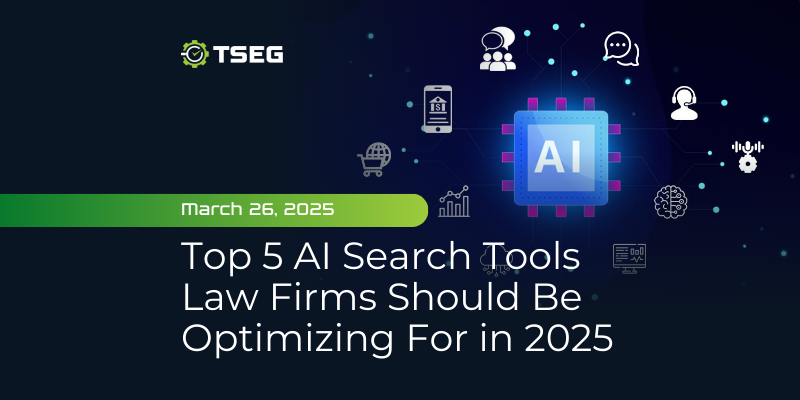Top 5 AI Search Tools Law Firms Should Be Optimizing For in 2025
Posted on Wednesday, March 26th, 2025 at 1:23 pm
It’s Not Too Late To Be Early
If you’ve been paying attention lately, you know that what used to be a ten-blue-links experience is quickly being replaced with something smarter, faster, and—depending on the tool—completely AI-driven.
Today’s searchers have moved beyond typing in keywords and clicking the first link. They’re asking full questions, expecting complete answers, and often getting those answers directly on the search page—without ever having to visit a website. For firms that generate cases from search visibility, that’s a serious change in how online discovery works.
AI search tools, however, are still in their early stages, which means firms that adapt now have a real competitive edge. In the next section, we’ll break down five search tools that are already live, already influencing user behavior, and worth paying attention to.
The Tools to Optimize For (and Why They Matter)
Not all AI search engines are built the same—and not all of them matter equally when it comes to legal marketing. Below are five tools that are already changing how people find answers online. If your firm wants to stay visible, these are worth exploring.
1. Google AI Overviews
If you’ve searched a legal question on Google recently and seen a boxed summary at the top, that’s likely an AI Overview. It’s generated by Google’s Gemini model and designed to give users a quick answer without needing to scroll. These summaries pull information from multiple sources, usually sites that already rank well in Google’s index.
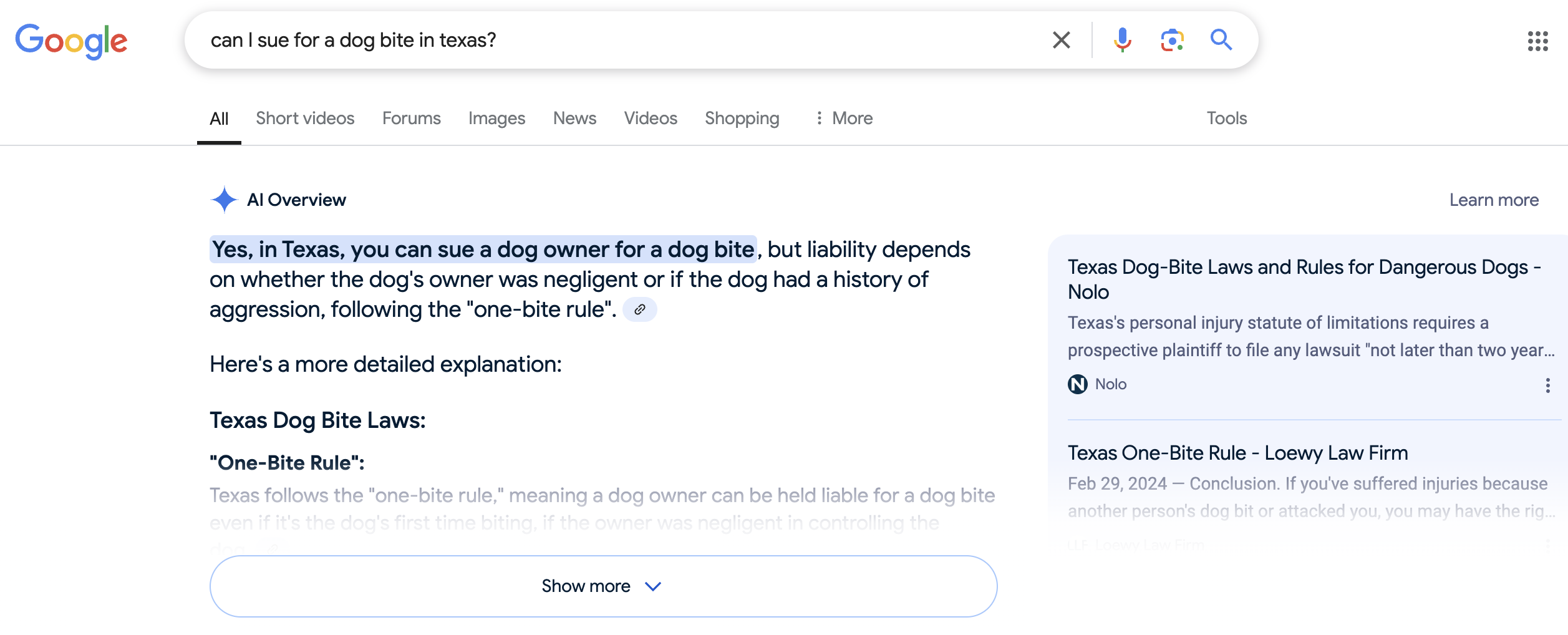
For law firms, this means strong organic rankings are still the ticket in. A recent study showed nearly half of all sources cited in AI Overviews come from the top 10 search results. That said, inclusion isn’t perfectly predictable—Google sometimes pulls from lower-ranked or even obscure pages. But if your site isn’t ranking at all, it’s unlikely to show up here.
There’s also the traffic angle. Pages that appear in AI Overviews tend to get more clicks than those left out. For certain types of queries, the difference can be dramatic. On the flip side, firms that aren’t cited may see fewer users reaching their site at all. And while you can opt out of having your content used by AI through your robots.txt file, most businesses will want in. The better move is to make sure your content is optimized—technical SEO, strong headlines, and clear, accurate information still win.
2. Gemini
Gemini is Google’s AI assistant that powers both AI Overviews and its standalone chatbot experience. Unlike traditional search, Gemini doesn’t show a list of blue links at all—it answers questions directly in a chat format, often using a mix of search data, licensed content from partners like the Associated Press, and a user’s own search history and website activity.
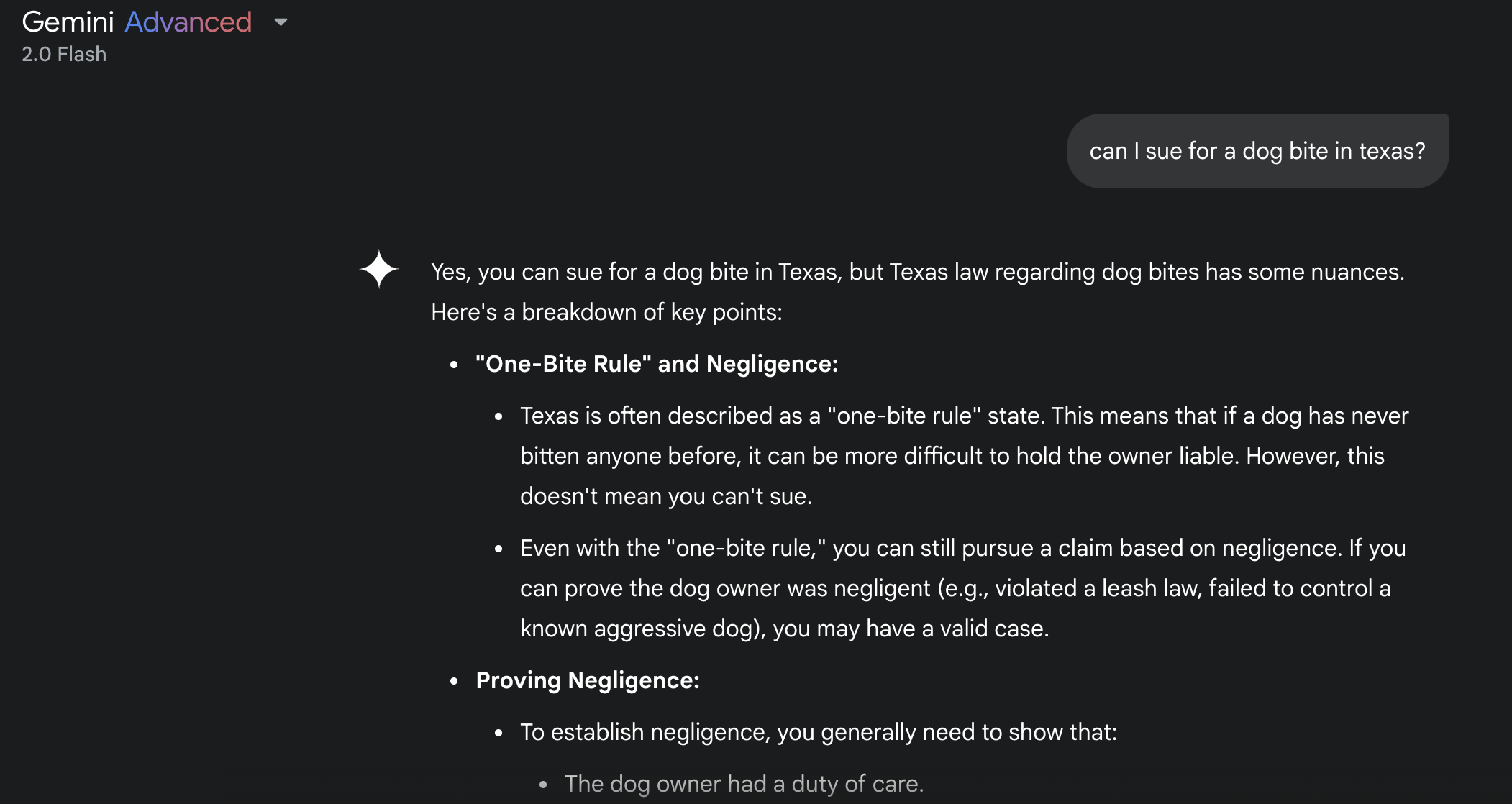
This assistant is being rolled out everywhere—on Android phones, inside Google apps, and across smart devices. That means your firm’s content could end up in someone’s AI-generated answer without them ever visiting Google Search. But that only happens if the system finds your content relevant and trustworthy enough to use as its answer to user prompts.
What makes Gemini unique is how it adapts responses to individual users. Someone who’s watched several personal injury settlement videos on YouTube, for instance, might get different suggestions or cited sources than someone who hasn’t. This personalization adds another layer to SEO—ranking well is still important, but relevance to the user’s broader activity matters too.
Right now, Gemini isn’t a major driver of referral traffic. It doesn’t always include clickable links, and when it does, the layout isn’t built to encourage clicks. Still, it’s worth paying attention to, especially as it becomes more widely adopted across devices. Keeping your content structured, informative, and aligned with the types of questions potential clients ask will help Gemini find and use your site.
3. Bing Copilot
Bing Copilot is Microsoft’s version of AI-assisted search, and it’s been around longer than Google’s AI Overviews. It lives right inside Bing’s search results and provides AI-generated summaries above or alongside traditional listings. Users can also toggle into a full AI chat mode, where Bing pulls in deeper answers based on real-time web data.
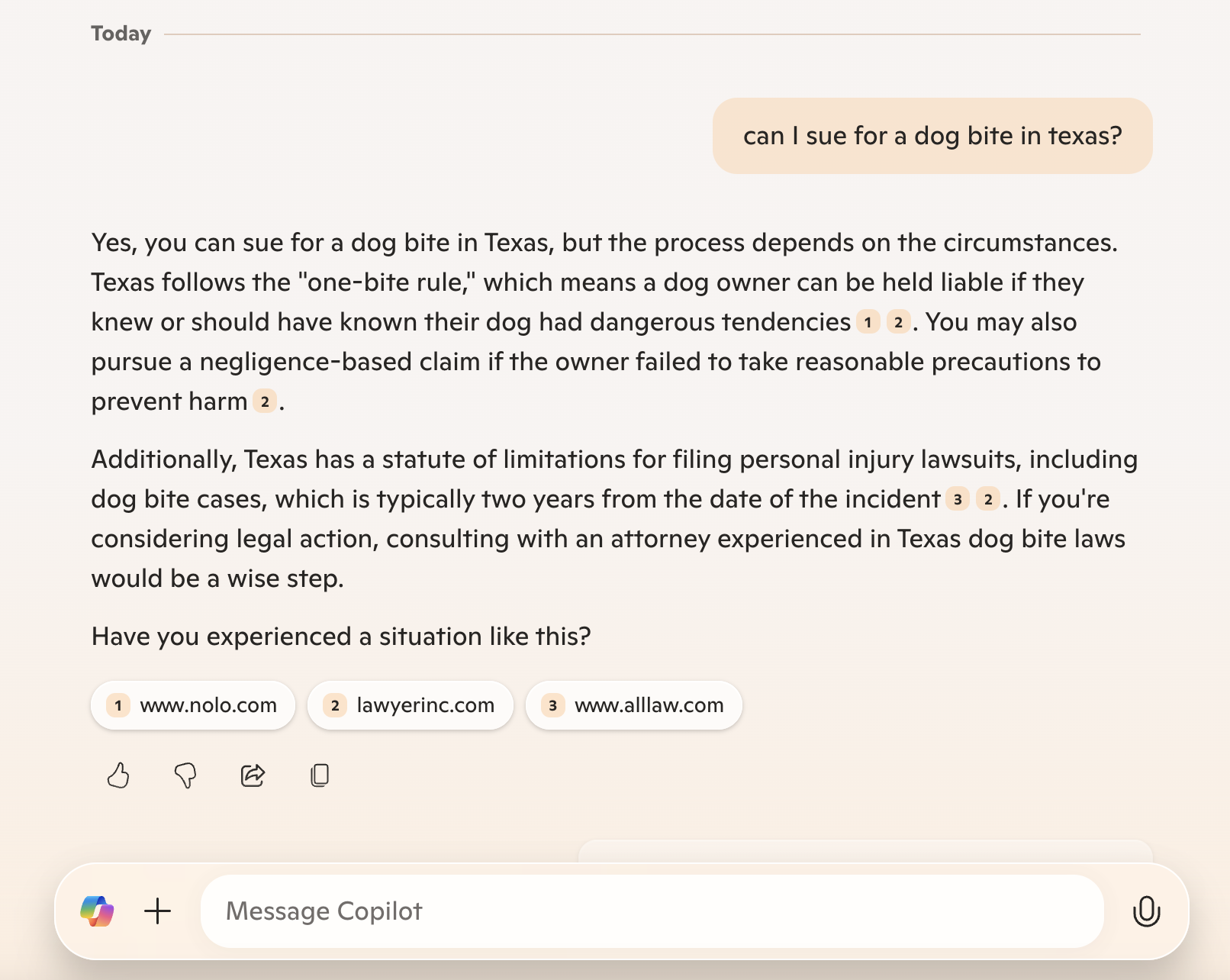
Unlike Google, Bing Copilot doesn’t strictly stick to top-ranking pages. That gives smaller or newer sites a better shot at being cited. Still, research shows that the majority of links included in Copilot summaries come from pages ranked in Bing’s top 20. If your content isn’t showing up there, Copilot likely won’t find it.
For law firms, this is a reminder not to ignore Bing. It may not dominate the search market like Google, but it’s powering several AI tools behind the scenes, including some of ChatGPT’s web results. And as more users interact with Copilot-style summaries, Bing becomes another route for potential clients to discover your firm—especially if your content is helpful, specific, and crawlable.
4. ChatGPT with Search
When OpenAI added real-time web browsing to ChatGPT, it stopped being just a writing and coding tool and started acting like a true search engine. Users can now ask questions and get AI-generated answers that are backed by live web results—often with clickable citations pulled from Bing and select content partnerships.
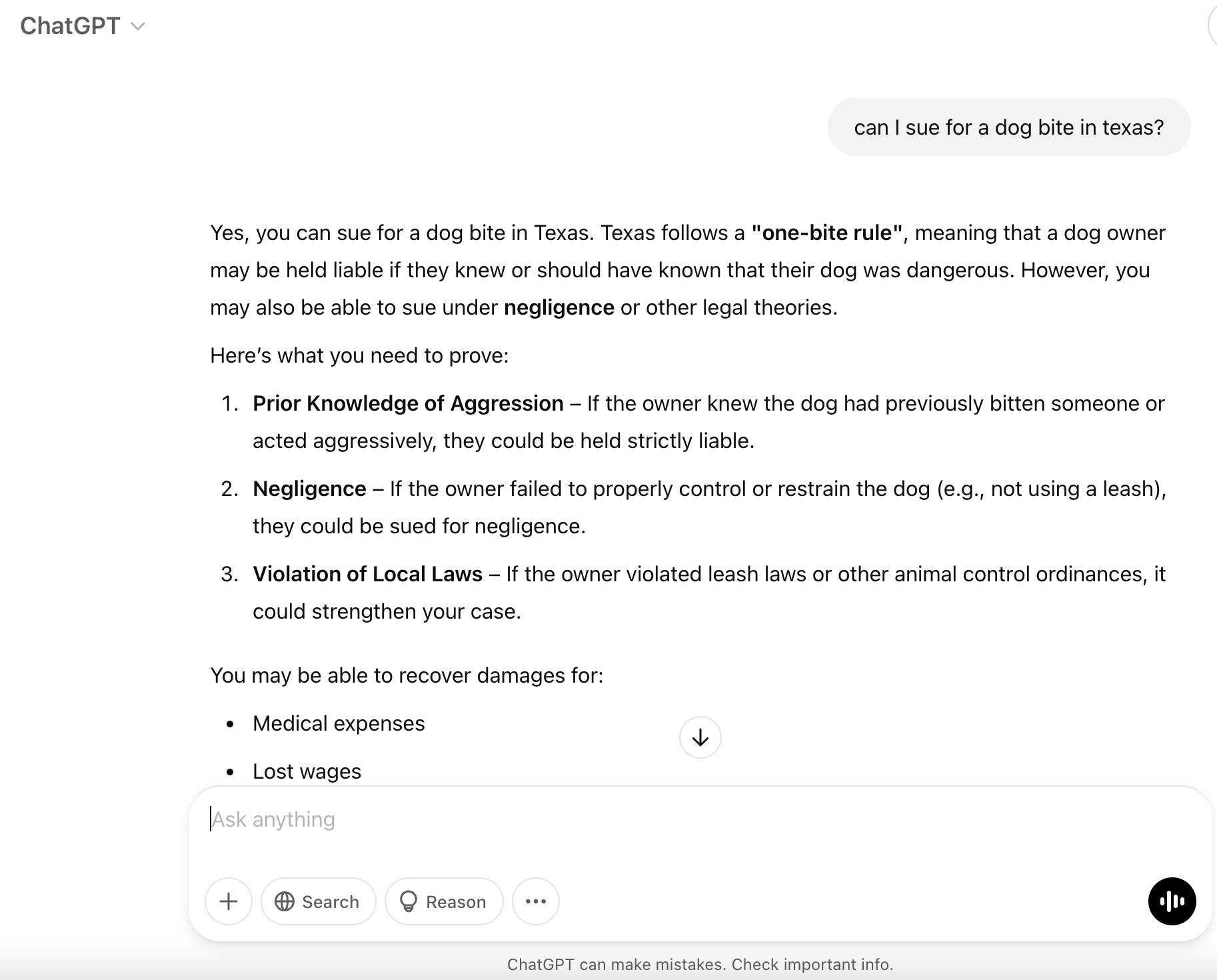
This upgrade made ChatGPT a serious traffic source for websites, including law firms. One study tracking hundreds of small and midsize businesses found that referral traffic from ChatGPT more than doubled over a five-month period. Sites that publish educational or informational content tend to see the most benefit—especially if they’re indexed in Bing.
And that’s the key. Because ChatGPT relies heavily on Bing’s infrastructure, your visibility here depends on how well you perform in Bing Search. If your content isn’t ranking there—or worse, isn’t indexed—it likely won’t show up in ChatGPT’s responses either.
5. Perplexity AI
Perplexity is a newer player in the search space, but it’s gaining serious attention—and investment. Unlike ChatGPT or Gemini, it operates as a full-blown search engine that crawls the web directly, builds its own index, and cites its sources every time it gives an answer. That citation feature is one of its biggest draws. Every response comes with links, making it easy to trace where the information came from.
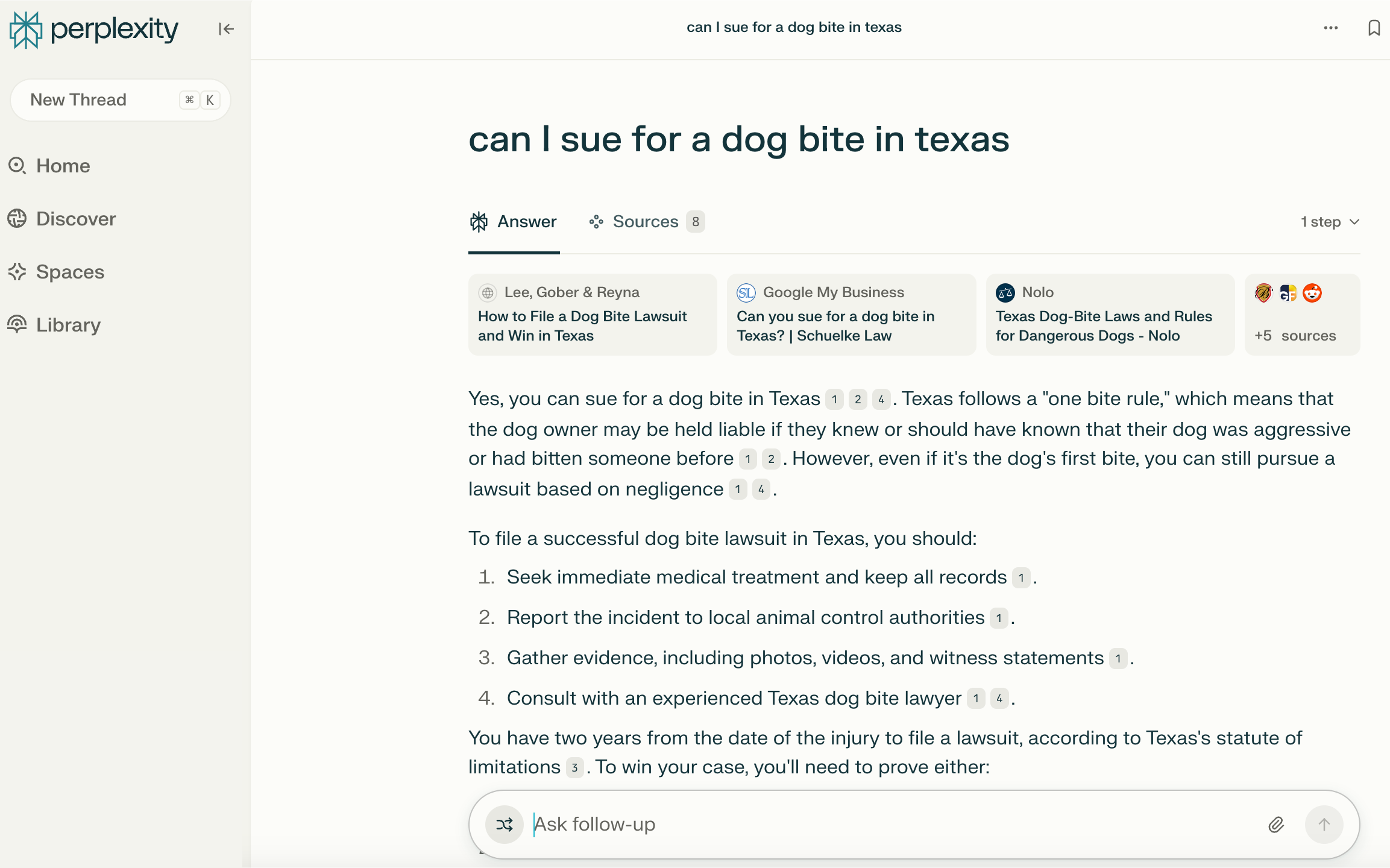
While it’s still small compared to Google or Bing, Perplexity’s user base is growing fast, and it already holds a meaningful share of the AI search market. It doesn’t try to index the entire internet. Instead, it focuses on high-quality, frequently searched topics. That means having well-structured, trustworthy content gives you a better shot at being included.
Perplexity tends to favor clear formatting—headings, FAQs, and bite-sized explanations that can be quickly understood and reused by its AI. If your site has that kind of content, it’s more likely to get picked up. Right now, referral traffic from Perplexity is relatively low, but the visibility it offers could be a sign of where search habits are heading.
For firms that want to stay ahead, this is one to watch closely. The more your content resembles a reliable source, the better your chances of getting cited—and clicked.
Don’t Let the Algorithm Write You Off
AI search tools aren’t replacing Google, but they are changing what it means to be visible online. It’s no longer just about climbing to the top of a list—it’s about being chosen as a source when an AI model answers someone’s question directly.
For law firms, that means the content on your website isn’t just competing for search rankings anymore. It’s competing for inclusion in AI-generated responses across tools like ChatGPT, Gemini, Bing Copilot, and Perplexity. Some of these tools pull from different indexes. Some personalize results based on a user’s online behavior. All of them favor content that’s clear, accurate, and formatted in a way AI can easily understand.
The good news is that you don’t have to start from scratch. A strong SEO foundation still pays off—especially when paired with thoughtful content strategy, technical soundness, and a real understanding of how these AI tools pull and present information.
At TSEG, we stay ahead of search trends so law firms don’t have to play catch-up. Whether it’s optimizing for Google, Bing, or the next wave of AI-driven platforms, we build strategies that get your firm in front of real people asking real questions—no matter where they’re searching. Reach out for more info today.
